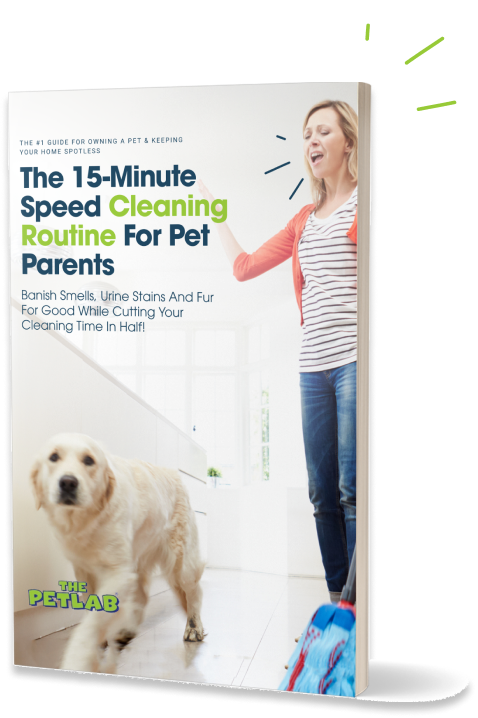Know how they say curiosity killed the cat? Spoiler alert: When it comes to the common household toxins for pets listed below, that saying is spot on! Except it applies to dogs, too.
So, whether you’re a new pet owner or need a refresher, these are the pet household hazards to keep in mind.
What household items are toxic to pets?
Over-the-counter (OTC) and prescription medicines 💊
It’s safe to say we all have OTC and prescription meds at home. You might even have a stash of supplements, herbal products, and diet pills around the house.
Well, all those medications? They’re harmful to pets—even in small quantities.
But there's no need to panic. Just store all medicines in a closed (read: locked) cabinet or high up where your pet can't reach them. Remember that child-proof and tamper-resistant packaging don’t mean pet-proof!
TL; DR: These are the 10 pharmaceutical products most likely to (accidentally) poison your pet.
Human foods 🥑
We feel you: Those puppy dog eyes are irresistible. But resist you must because your favourite foods were not meant for animal consumption.
Yep, that includes chocolate, caffeine, certain fruits, trail mix, aromatics (like garlic and onions), and “healthy” sugar-free baked goods. Oh, and alcohol. Obviously, another major no-no.
These foods and drinks are either:
- downright poisonous,
- contain dangerous ingredients (like xylitol),
- or cause harmful biological reactions in cats and dogs.
Yikes!
Wondering if a particular food item is safe for your pet to eat? This A-to-Z guide on toxic foods is a great place to start.
TL; DR: Don’t share human food with pets. Buy tasty treats formulated for cats and dogs instead.
Household cleaning products 🧽
As we adapt to our New Normal, some habits remain. Namely, intensive cleaning to keep viruses and bacteria at bay!
But here’s the thing: Many everyday cleaning products contain harsh chemicals like benzalkonium chloride, bleach, and phenols that are poisonous to pets. Worse yet, it doesn’t take much to make your pet seriously ill!
Take note:
- Skin contact can cause chemical burns.
- Inhalation can bring about respiratory problems.
- Ingestion can cause severe gastric consequences—and death.
Seriously, it's no wonder cleaning products are one of the most common causes of cat poisoning.
TL; DR: Use a pet-safe cleaning product like Healthy Habitat by PetLab. It’s a 3-in-1 cleaner, disinfectant, and odour eliminator that’s 100% chemical-free.
Pesticides and rodenticides ☠
This one's self-explanatory. Pesticides, rat/mouse killers, and mosquito repellent are dangerous if not lethal for cats and dogs. (Nope, it’s not any safer when used outdoors.)
Here’s the terrifying part: Some products have no antidote! So, always follow proper handling as well as post-treatment and disposal guidelines. Also, never leave your pet indoors or unattended. Finally, ventilate rooms after.
TL; DR: Use insect or rodent killers with caution. Read the label before you set traps or start spraying!
Indoor and outdoor plants 🌵
Sure, plants beautify your home. They also turn a simple garden into a stunning backyard paradise. But everything from leaves and flowers to fruits (or nuts), sap, stems, and bark can poison your little buddy.
Our tip? Before buying a new potted plant, review these poisonous plants for cats and dangerous plants for dogs. Better safe than sorry!
TL; DR: Plants can be hazardous to your pet’s health, so do your research.
What to do if you suspect your pet was exposed to poison?
In case of an emergency, call your vet or the national animal poisons helpline (fees may apply). If possible, bring your pet to the vet immediately!
Important phone numbers:
Animal Poisons Helpline Australia: 1-300-869-738
Animal Poisons Helpline New Zealand: 0800-869-738
Extra reading:
This valuable resource shows toxicity levels and lists symptoms of pet poisoning. You can also print out this infographic on the top 10 toxins of 2021.
Disclaimer: This post is for informational purposes only. It is not and does not intend to be a substitute for professional veterinarian advice, diagnosis, or treatment. Reliance on any information on this website is at your own risk. Always consult with your veterinarian.


